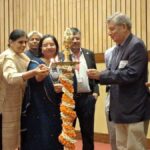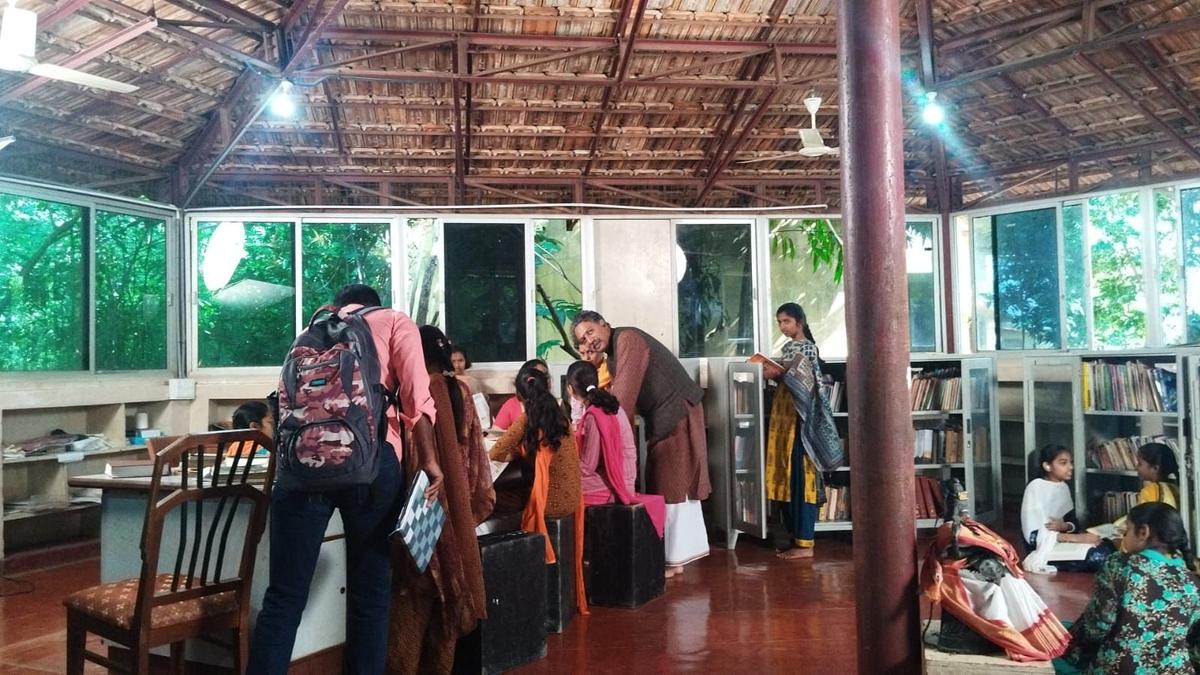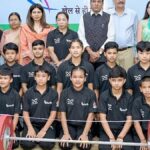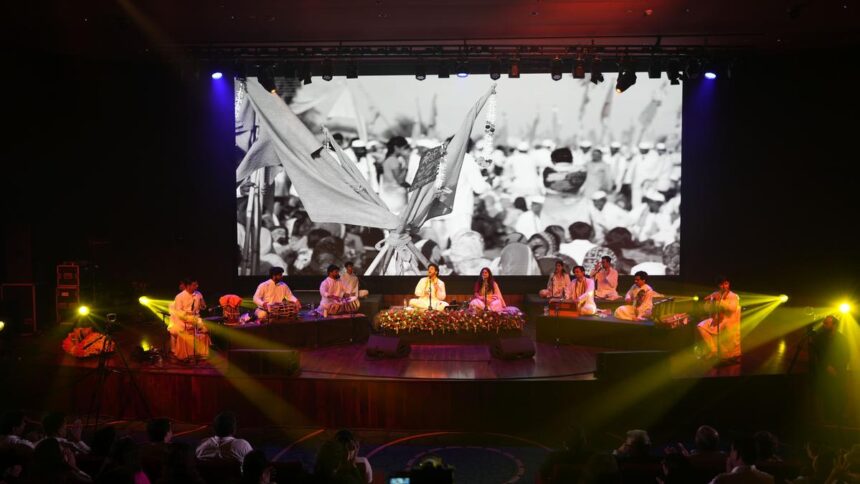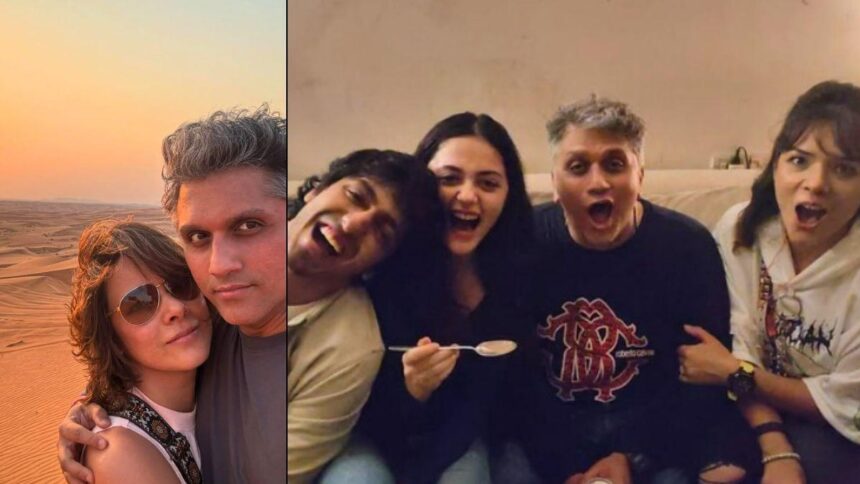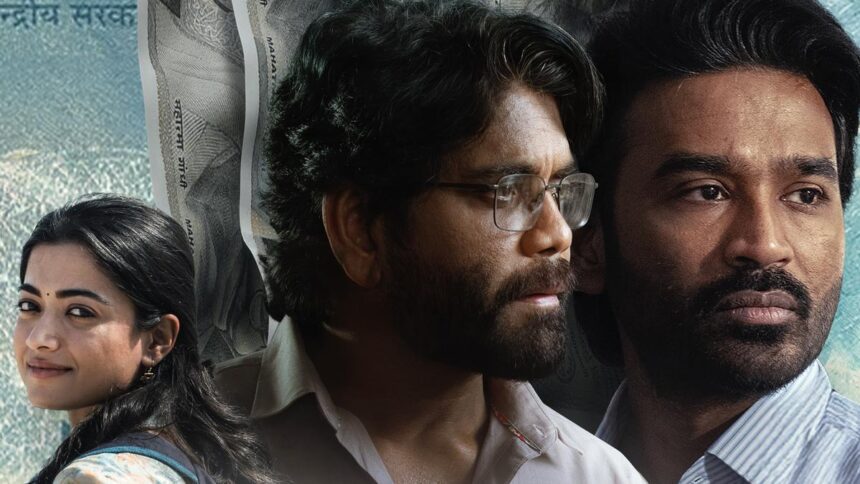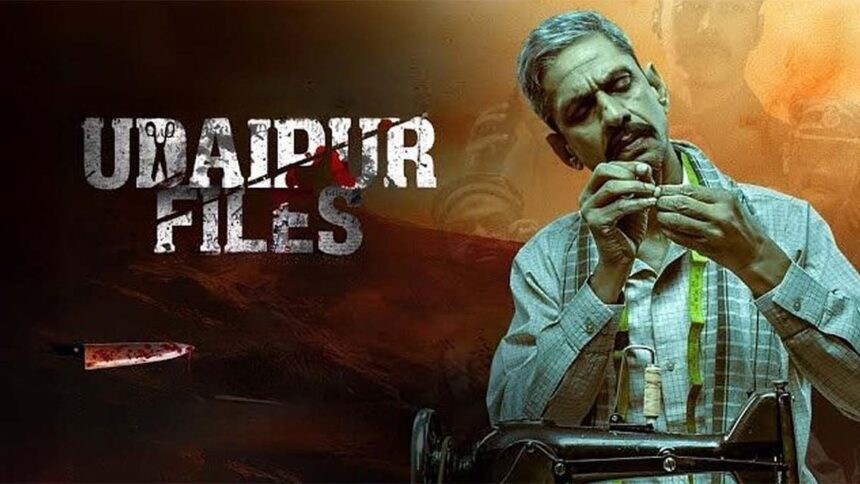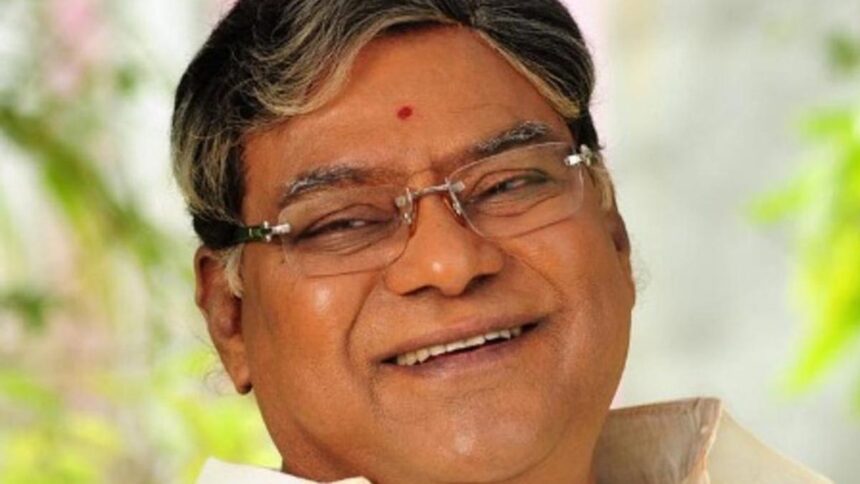
Suchendra during the shoot at Shubham Karoti Maitreyee Gurukula, Bengaluru
| Photo Credit: Special Arrangement
It’s not often that you get to talk to the director of a Sanskrit feature film. And when you do, you realise how difficult it is to make a film in Sanskrit, particularly for a contemporary audience.
Padmagandhi, directed by popular Kannada actor-director and theatre personality, K. Suchendra Prasad and produced by Sanskrit scholar S.R. Leela is about the flower — lotus. The story is told through a young girl studying at a gurukula and in the process, touches upon mythology, scriptures and warfare. “Though the theme may come across as philosophically intense, it is not. It is a children’s film that will appeal to adults too,” says Suchendra. .”
Drawn into directing the film after understanding the flower’s strong presence in our culture, Padmagandhi opened Suchendra’s eyes “It is intriguing that the lotus grows in muddy waters, yet is considered pious. The lotus is mentioned in our vedas, specifically Sri Suktam. These names describe specific lotus-like characteristics associated with our deities. It is our national flower and the highest civilian awards are named after it. We have the Swarna Kamal award for actors. Besides, there are over 36,000 synonyms/references only for the lotus in the ancient book, Amarakosha. Subjects such as botany consider the lotus important due to its medicinal value. One can find its references in our literature, performing arts and temple architecture. These are the aspects that Padmagandhi weaves into its story,” shares the director, who believes, “we are losing out on our ancient studies of science and scriptures, which is what we talk about through the medium of cinema.”

The film also features a few theatre artistes from across the globe
| Photo Credit:
Special Arrangement
Knowledge that is available in our scriptures is vast. “We have been able to incorporate just the essence of the vedas and puranas in the film,” says Leela, who’s earlier film, Ekachakram, directed by Suchendra, was their first Sanskrit feature film that has had a successful stint at film festival circuits.
Leela has invested all her life’s savings to promote Sanskrit language and what better way to do this than through a film? “I approached Suchendra as he is one of those rare actors, who is also a Sanskrit scholar. Ironically, the film’s lead child artiste’s real name is Mahapadma, which has been retained in the film and has become a part of the narrative. It is her curiosity, as to why she is named so, that triggers her journey and the story of Padmagandhi. Initially, I wanted to make it as a documentary but Suchindra felt that the story could be built into a feature film.”
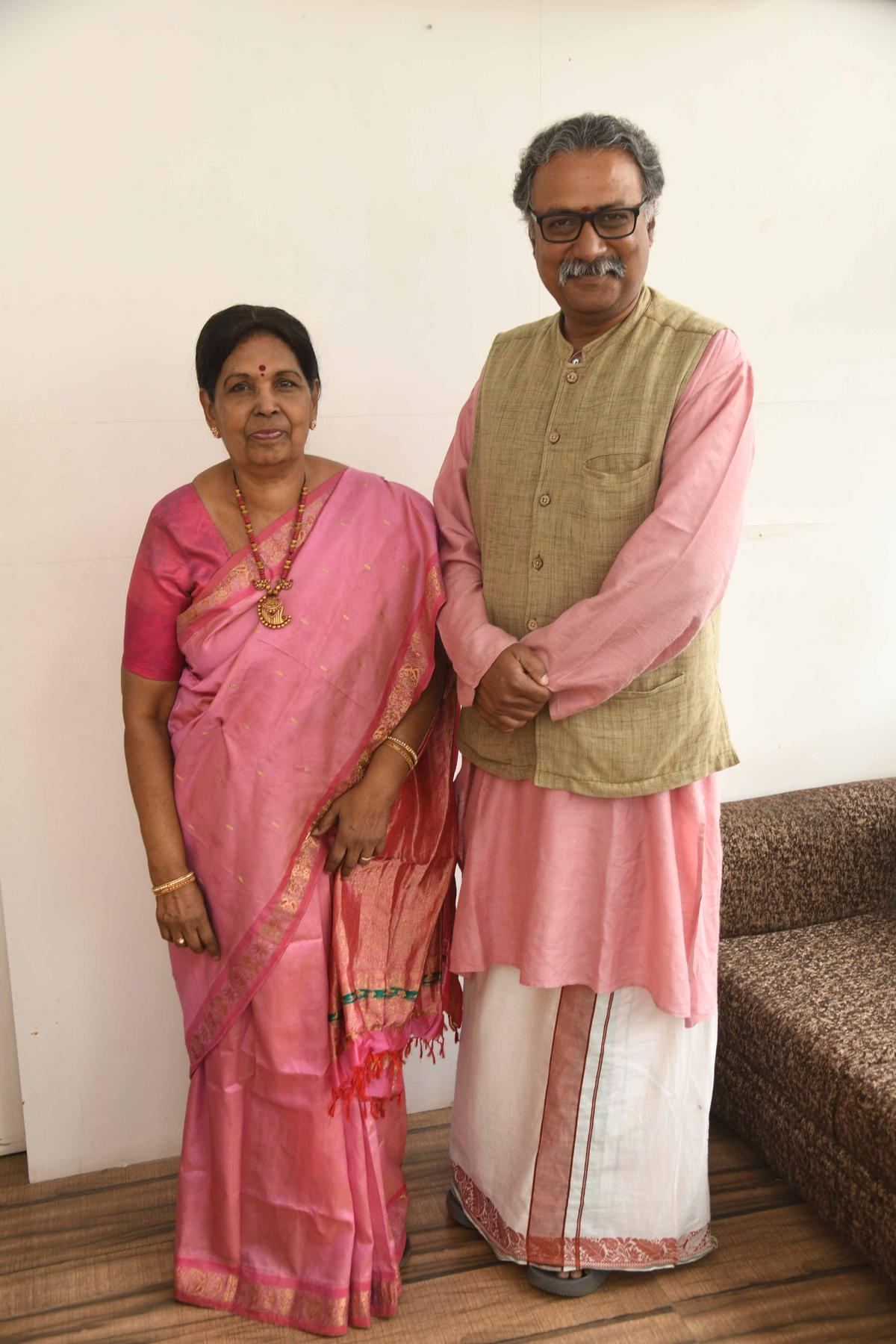
This is S.R. Leela’s second film collaboration with Suchedra, her first being the Sanskrit film Ekachakram
| Photo Credit:
Special Arrangement
There is a need for films such as Padmagandhi, believes Suchendra, as “we ape the West blindly in all that we do and are losing out on our culture. We had five ancient universities, where people from across the world came to study. None of them exist. Yet, our knowledge and heritage survived as ours is ‘maukhikha parampara’ (oral tradition).”
Suchendra plans to screen Padmagandhi first at the Indian Panorama International Film Festival. “This film has been in the making for over six years. Four years went into discussions and study with Sanskrit scholars and researchers. We want to make sure it reaches as many people as possible.”
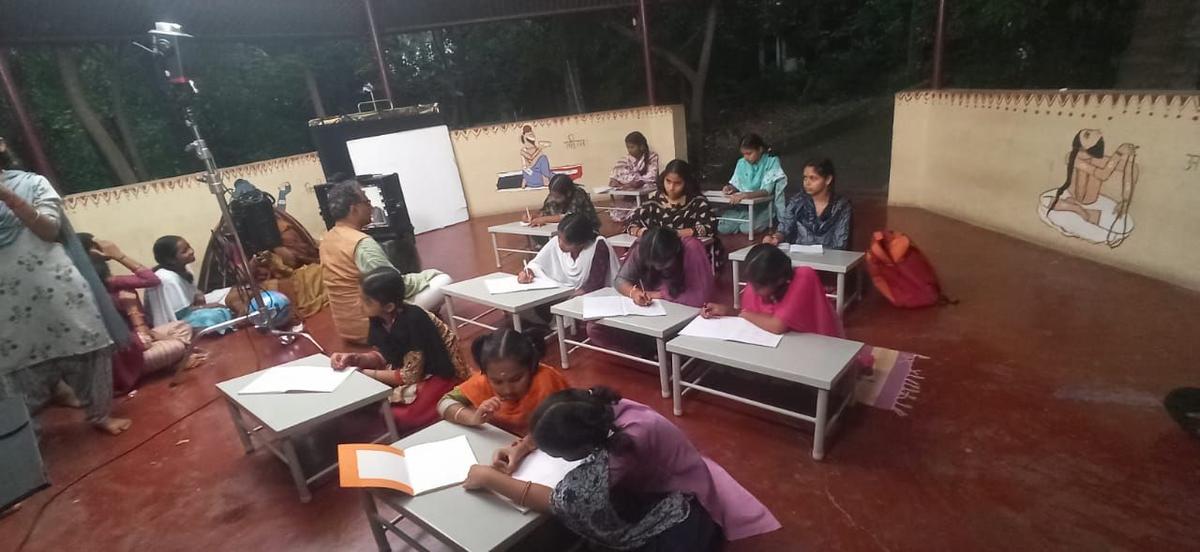
Over 100 children, fluent in Sanskrit, act in the film
| Photo Credit:
Special Arrangement
The gurukula sequences in Padmagandhi were filmed at Shubham Karoti Maitreyi Gurukula in Bengaluru. “It is a gurukula for girls and aims to promote Indian culture along computer studies and karate,” says Suchendra adding that there are several gurukulas across Karnataka. He gives complete credit to Leela. “It is her passion for Sanskrit and research on the lotus of over a decade that has been made into a film.”
The other USP of the film is the music, which is composed by a Sanskrit scholar, Deepak Paramashivan, and all actors, cast i n the film are Sanskrit students, who speak the language fluently. The film is edited by N. Nagesh Narayanappa and will be released under the banner of Suchendra’s production house, Voicing Silence.
Published – July 08, 2025 06:43 pm IST




